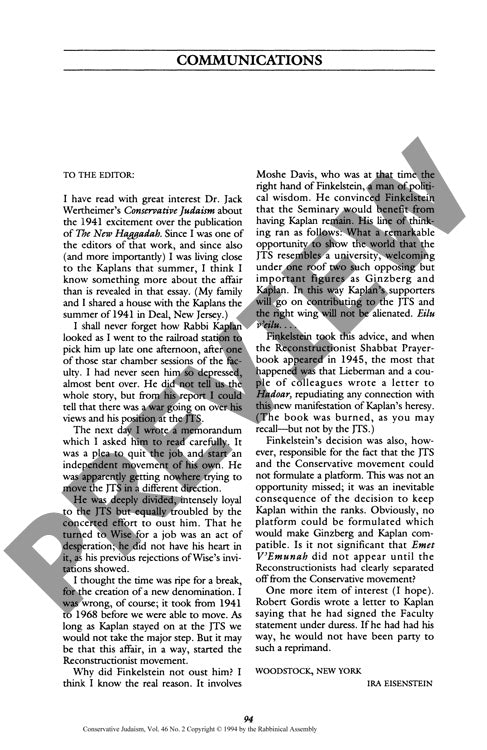Communications
Couldn't load pickup availability
This communication presents historical insights into the 1941 controversy surrounding Rabbi Mordecai Kaplan at the Jewish Theological Seminary (JTS) following the publication of *The New Haggadah*. Drawing from firsthand accounts and archival sources, the study examines the institutional dynamics that led to Kaplan's retention despite significant theological opposition from conservative faculty members, particularly Louis Ginzberg. The methodology relies on personal testimonies, correspondence, and administrative documents from key figures including Ira Eisenstein and Seminary leadership. The analysis reveals that Moshe Davis's political counsel to Chancellor Louis Finkelstein proved decisive, arguing that maintaining both Ginzberg and Kaplan would demonstrate the Seminary's university-like tolerance for diverse scholarly perspectives while preserving financial support from various constituencies. The findings indicate that this decision had profound consequences for Conservative Judaism's ideological development, preventing the formulation of a unified platform due to irreconcilable theological differences between traditionalist and reconstructionist positions. The study concludes that Finkelstein's pragmatic approach to institutional management inadvertently delayed the Reconstructionist movement's independence until 1968, while simultaneously hindering Conservative Judaism's ability to articulate coherent doctrinal positions until after the denominational separation occurred.

More Information
-
Physical Description
-
Publication Information
Published 1994
ISBN
-
Publication Credits

